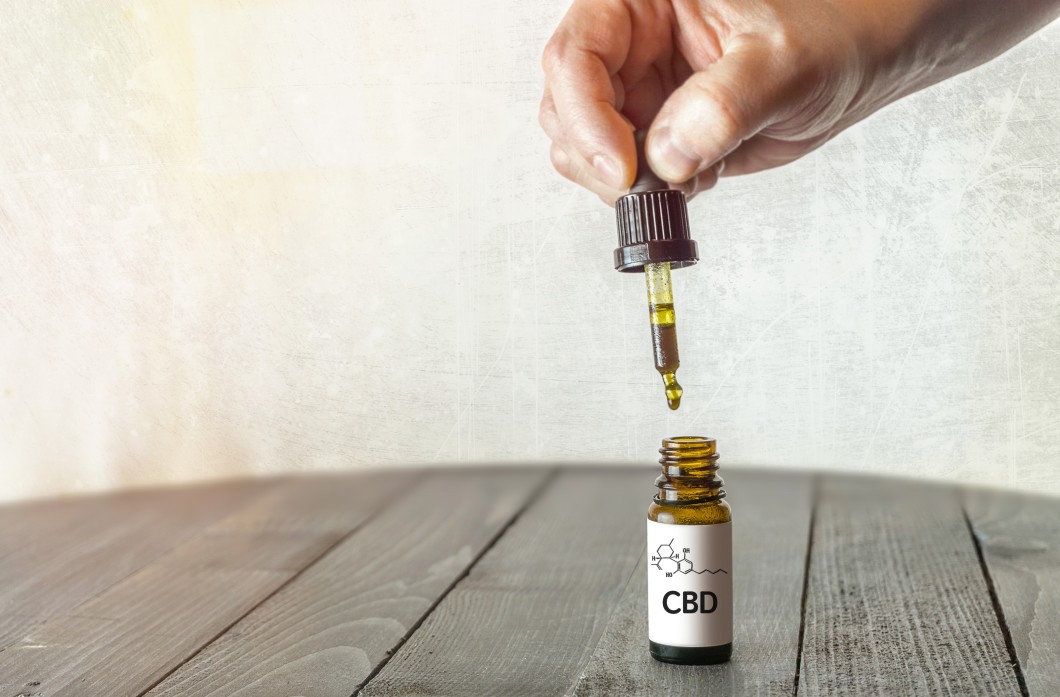Are you having trouble sleeping? You’re not alone. Millions of people around the world suffer from poor sleep, with many seeking out natural solutions to improve their sleep quality. Thankfully, there is a natural solution available: CBD.
Introduction
Cannabidiol (CBD) is a naturally occurring compound in the cannabis plant, known for its potential wellness benefits. Recently, CBD has gained traction as an effective solution for improving sleep due to its ability to reduce stress and anxiety levels, and to help users fall asleep faster and stay asleep longer.
In this article, we will explore the potential benefits of CBD for sleep, as well as the side effects and tips for using CBD to improve sleep. We will also provide a comprehensive overview of CBD, including what it is, how it is made, and the types of products available in the market.
CBD is quickly becoming one of the most popular natural sleep solutions on the market, and with the right knowledge, you can make an informed decision about whether CBD might be the right solution for you. So, let’s get started and learn more about CBD and how it can help you sleep better.

cbd and anxiety
Understanding CBD
Cannabidiol (CBD) is a natural compound derived from the cannabis plant. CBD has gained mainstream attention recently due to its potential health benefits, particularly for those looking for a natural solution to improve their sleep. This section will cover an overview of CBD, how it is extracted and produced, the types of CBD products available, and the legal considerations surrounding it.
CBD is one of the more than 100 compounds found in the cannabis plant, known as cannabinoids. It is the second most abundant cannabinoid after tetrahydrocannabinol (THC). THC is the compound responsible for the psychoactive properties of cannabis, while CBD does not produce any intoxicating effects. CBD is non-psychoactive and has been found to have many potential therapeutic benefits, including for improving sleep.
CBD is extracted from the flowers, stalks, and leaves of the hemp plant, which is a variety of the cannabis sativa plant specifically cultivated to contain very low levels of THC. The most commonly used method of extraction for CBD is hydrocarbon extraction, which is conducted using a combination of butane and carbon dioxide. After extraction, the oil is then processed into various forms, such as tinctures, capsules, and edibles.
CBD products come in many forms, including oils, capsules, edibles, topicals, and vaping products. It is important to note that while CBD can be derived from both hemp and marijuana plants, products derived from hemp plants are legal in the United States, while those derived from marijuana plants are not. Therefore, it is important to ensure any CBD product you purchase comes from a hemp plant and that it is labeled accurately and contains the legally allowed amount of THC (less than 0.3%).
When considering CBD products for sleep, it is important to understand the legal considerations surrounding it. CBD products are required to be labeled accurately and contain only the legally allowed amount of THC, as mentioned above. Additionally, it is important to research any CBD product you are considering as many products on the market are not tested for safety and may contain contaminants.
CBD and Sleep
Sleep is a vital part of our overall health and well-being, and many of us struggle to get enough quality sleep. CBD, or cannabidiol, is a natural compound found in cannabis plants that may be able to help. Recent studies suggest that CBD may have beneficial properties for those looking to improve their sleep quality.
Cannabidiol is a naturally occurring compound found in the hemp plant. It is extracted from the plant and separated from the other compounds in the plant. It is then processed and refined to create products such as CBD oil, edibles, tinctures, and capsules. CBD products can be found in many forms, including creams, sprays, and oils.
When it comes to using CBD for sleep, there are a few different ways to take it. It can be ingested as an edible, taken as a tincture, or applied topically. It is important to note that CBD is not regulated by the FDA, so it is important to choose products from reputable companies that provide third-party lab results.
CBD works by interacting with the endocannabinoid system in our body, which is responsible for regulating several bodily functions, including sleep. It works by binding to receptors in the body, which triggers a response that helps to promote relaxation and reduce stress and anxiety levels. It can also help to reduce inflammation, which can help to reduce pain and aid in better sleep. For those who suffer from insomnia, CBD may be an effective natural solution.
CBD has been found to help with sleep in a few different ways. It can help to reduce stress and anxiety levels, which can help to reduce insomnia. It can also help to keep the body in a more relaxed state during the night, which can help to reduce the tossing and turning that can keep people awake. Additionally, it can help to reduce inflammation, which can help to reduce pain and improve overall sleep quality. Finally, it can help to increase alertness during the day, which can help those who struggle with daytime fatigue.
Potential Benefits of CBD for Sleep
Cannabidiol (CBD) is a chemical compound derived from hemp plants that has been gaining popularity due to its potential to offer a natural solution for better sleep. CBD has been studied for its ability to promote relaxation, reduce stress and anxiety, and improve sleep quality, making it an attractive option for those looking to improve their sleep without relying on potentially habit-forming sleep aids or medications.
Improved Sleep Quality
One of the main benefits of CBD for sleep is its ability to improve sleep quality. Studies have shown that CBD may help reduce insomnia and increase overall sleep duration. It may also help to reduce the number of times someone wakes up during the night – a common issue for those suffering from chronic insomnia. In addition, CBD may help to reduce the time it takes to fall asleep.
Reduced Stress and Anxiety Levels
Stress and anxiety are known to interfere with sleep, so it’s no surprise that CBD has been studied for its ability to reduce these feelings. It has been shown to reduce stress levels and improve overall mood, both of which can have a positive effect on sleep.
In addition, CBD has been studied for its ability to help people manage their anxiety more effectively, which can help to reduce feelings of anxiety related to sleep.
Improved Alertness and Concentration During the Day
CBD has also been studied for its potential to increase alertness and concentration during the day. It may help to reduce fatigue and improve overall mental clarity, allowing people to be more productive and focused during their day-to-day activities. This can be especially beneficial for those who suffer from chronic fatigue or impaired concentration due to sleep deprivation.
The potential benefits of CBD for sleep are varied and wide-ranging. For those looking for a natural solution for better sleep, CBD may be worth considering. It has the potential to improve sleep quality, reduce stress and anxiety levels, and improve alertness and concentration during the day. However, it’s important to remember that everyone reacts differently to CBD, so it’s important to speak with a healthcare professional to find the right product and dosage for your needs.
Side Effects of CBD
Cannabidiol (CBD) has become a popular natural remedy for a variety of health issues, including sleep problems. But like any medication, it is important to consider the potential side effects before using CBD for sleep.
Though research on the safety of CBD is growing, there is still limited information on its possible side effects. A recent study of adults aged 18-55 found that most participants experienced no side effects when using CBD. The most common side effects experienced were fatigue, changes in appetite, and diarrhea.
It is important to note that CBD can interact with other medications. People taking blood thinners or anti-epileptic medications should consult their doctor before taking CBD, as it can increase the levels of these medications in the blood. It is also important to note that CBD can cause an elevation in liver enzymes, which could potentially be a concern for those with pre-existing liver conditions.
In addition, it is important to consider potential drug-drug interactions when taking CBD. For instance, CBD can interact with certain antiretroviral drugs, such as ritonavir and darunavir, which may reduce their effectiveness.
It is also important to mention that CBD has psychoactive effects, even though it does not produce a “high” like other cannabis compounds, such as THC. This is because CBD can interact with the body’s endocannabinoid system, which can affect mood, memory, and other cognitive processes. Individuals taking antipsychotics or anti-anxiety medications should consult their doctor before taking CBD.
Finally, it is important to consider the potential for allergic reactions when taking CBD. Though rare, some people may experience an allergic reaction to the compounds in CBD products. It is important to pay attention to any signs of an allergic reaction, such as skin irritation or difficulty breathing, and seek medical attention if necessary.
Overall, while the side effects of CBD are minimal compared to traditional medications, it is important to consider the potential risks before taking CBD for sleep. It is recommended that individuals consult with their doctor before taking CBD for any condition.

Tips for Using CBD for Sleep
When using CBD for better sleep, it is important to consider a few factors first. Different methods of taking CBD can vary in their effectiveness and in the side effects they might bring. It is also important to understand the guidelines for safe and effective dosage.
When it comes to methods of taking CBD, one of the most popular is sublingual administration. Sublingual administration involves placing drops of CBD oil under the tongue and holding it there for up to two minutes. This method allows the CBD to more quickly enter your bloodstream and reach your target receptors. It is also a safe and convenient way to take CBD, as it does not involve any inhalation or ingestion of foreign substances.
Another popular method of taking CBD is vaping. Vaping is a fast and efficient way to get the benefits of CBD. It involves using a vaporizer to heat up CBD oil and inhale the vapor. Vaping is a fast-acting method that allows CBD to quickly enter your bloodstream, however, it may not be the best option for those with respiratory issues or sensitivity to smoke.
It is also important to pay attention to the dosage when taking CBD. It is best to start with a low dose and work your way up as needed. Most experts recommend taking a low dose of around 10-20mg of CBD at bedtime. A higher dose may be needed depending on your individual needs, however, it is important to remember that different products may have different concentrations of CBD, so it is important to read the label and adjust the dosage accordingly.
It is also important to remember that CBD can interact with certain medications, so if you are taking any medications, it is best to speak with your doctor before taking CBD. In addition, it is also important to consider the quality of the CBD product you are using. Make sure to purchase your products from reputable companies that can provide third-party lab testing results to ensure safety and effectiveness.
Lastly, it is important to give CBD time to work. CBD can take up to two weeks to start providing relief, so it is important to be patient and consistent when using CBD for sleep. If you are not seeing the desired results after several weeks, you may need to adjust your dosage or try a different product.
By following these tips for using CBD for sleep, you can get the most out of your CBD experience and finally get the restful sleep you deserve.
Conclusion
CBD has become increasingly popular as a natural solution for improving sleep. By understanding how CBD works, what types of products are available, and the potential benefits and side effects, you can make an informed decision about whether CBD is the right solution for you.
CBD has the potential to help people sleep better by improving the quality of their sleep, reducing their stress and anxiety, and improving their alertness and concentration during the day. While CBD is generally thought to be safe, there are some potential side effects, and it is important to consider these when using CBD.
When it comes to using CBD for sleep, there are several things to consider. Different methods of taking CBD, such as sublingual oil, capsules, edibles, or vapes, can be used for sleep. It is also important to consider the dosage and how much is safe to take. Always start with a low dose and increase gradually as needed, and talk to your doctor before using CBD.
In conclusion, CBD can be a natural solution for better sleep. By understanding what CBD is, how it works, and the potential benefits and side effects, you can find the right CBD products for your sleep needs.
Always talk to your doctor before using CBD, and remember to start with a low dose and adjust as needed. With the right CBD products, you can experience the natural benefits of better sleep.
